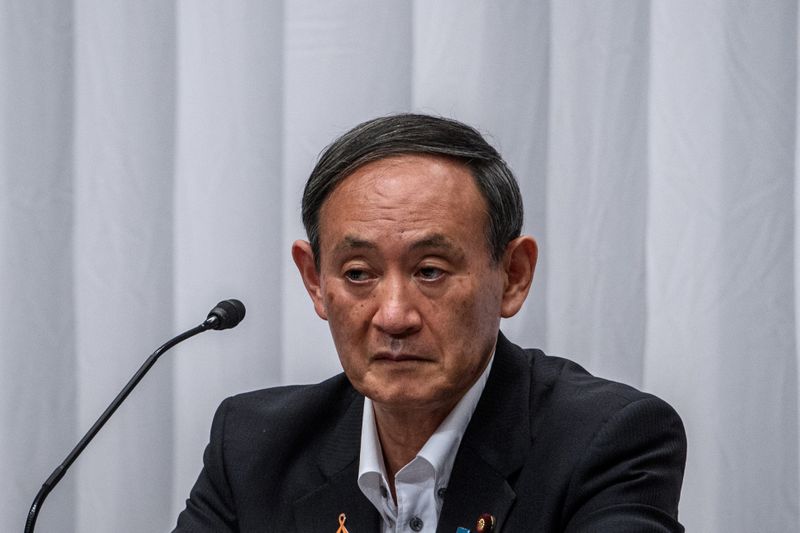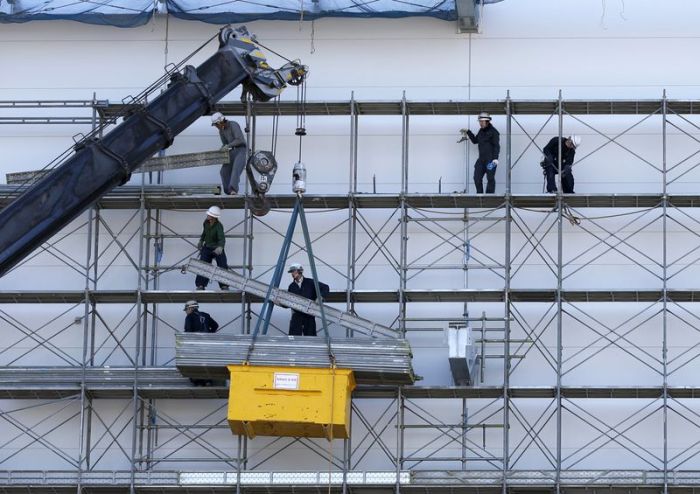TOKYO (Reuters) – Japanese government spokesman Yoshihide Suga is the voters’ favorite to succeed Prime Minister Shinzo Abe, according to a poll published by the daily Mainichi Shimbun on Thursday, amid speculation over an early general election.
About 44% of respondents, asked whom they would pick as Abe’s successor, said they would choose Suga, while 36% favored former Defence Minister Shigeru Ishiba. Suga held a clearer lead among supporters of the leading Liberal Democratic Party (LDP).
The poll, taken by the newspaper and Social Survey Research Centre, is the latest to show the chief cabinet secretary as the most popular candidate among ordinary voters.
The LDP leadership election will be held on Sept. 14, with LDP lawmakers and regional party representatives casting votes. The winner – who will serve the rest of Abe’s term as party chief, which ends in September 2021 – is virtually assured of becoming premier because of the LDP’s majority in parliament.
The surge in the popularity of Suga, who has served as chief cabinet secretary under Abe and has said he would pursue his boss’s key policies, is stoking speculation about a snap election for parliament’s lower house as early as next month.
No election is mandated until October 2021, but Suga may call a vote while his ratings are high to try to improve his chances of winning a full three-year term as party leader next year.
Defence Minister Taro Kono, in an online event sponsored by a U.S. think tank, said on Wednesday an election was expected “probably sometime in October”, domestic media reported.
Abe said Suga, if he takes over, would be able to continue with the current government’s policies, lawmaker Tomomi Inada told reporters on Thursday after meeting Abe.
If he becomes LDP chief next week, Suga wants to let the party’s secretary-general Toshihiro Nikai keep his powerful job, Mainichi newspaper reported.
Nikai is Suga’s major backer in the election.
Talk of a general election has added urgency to efforts by the fragmented opposition to unify, pushing the center-left Constitutional Democratic Party of Japan (CDPJ) to merge with former colleagues in the Democratic Party for the People (DPP).
The two groups emerged when the Democratic Party of Japan, which held government from 2009-2012, split in 2017.
On Thursday, the new party picked CDPJ leader Yukio Edano as its leader and voted to retain the CDPJ label for the new party.
Edano urged the government to open an extra session of parliament for debate but added: “If for their own selfish reasons they run away from this, we will face them head on and give the people a choice.”
The new CDPJ will have 149 incumbents members of parliament, compared with the LDP’s nearly 400.
Support for the LDP dwarfs that for the new opposition group, although the merger has improved its backing.
A Kyodo news agency survey released on Wednesday showed 48.1% would vote for the LDP against 15.7% for the merged party, up from just 4% who backed the CDPJ in a recent poll.
(Reporting by Ritsuko Ando and Linda Sieg, additional reporting by Ju-min Park; Editing by Gerry Doyle and Hugh Lawson)
























